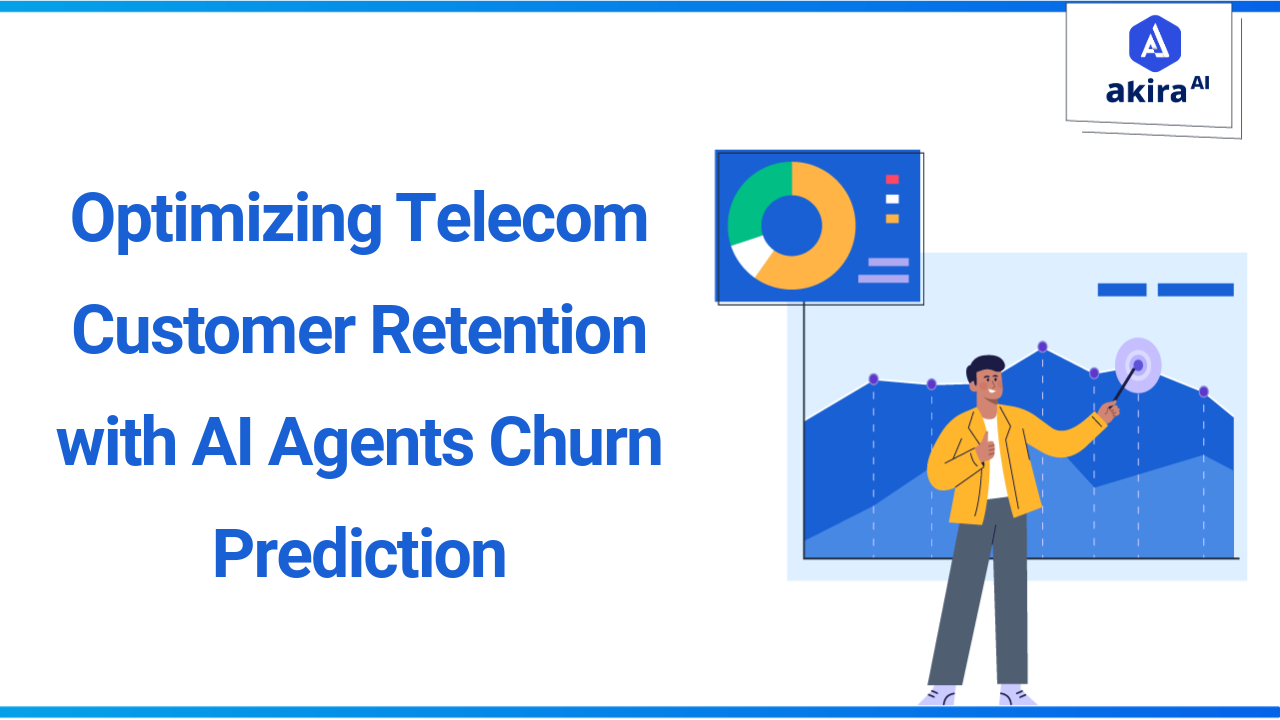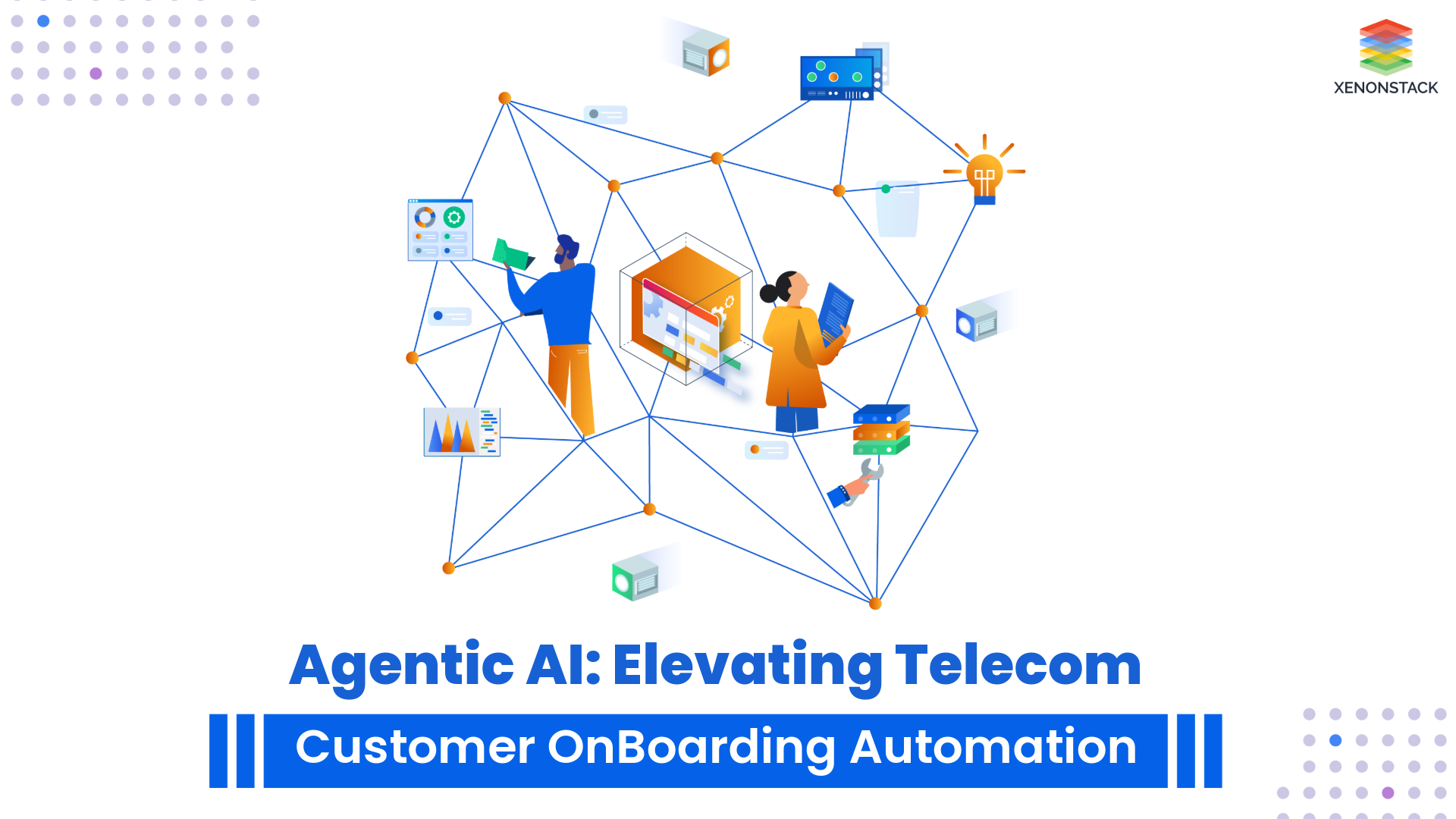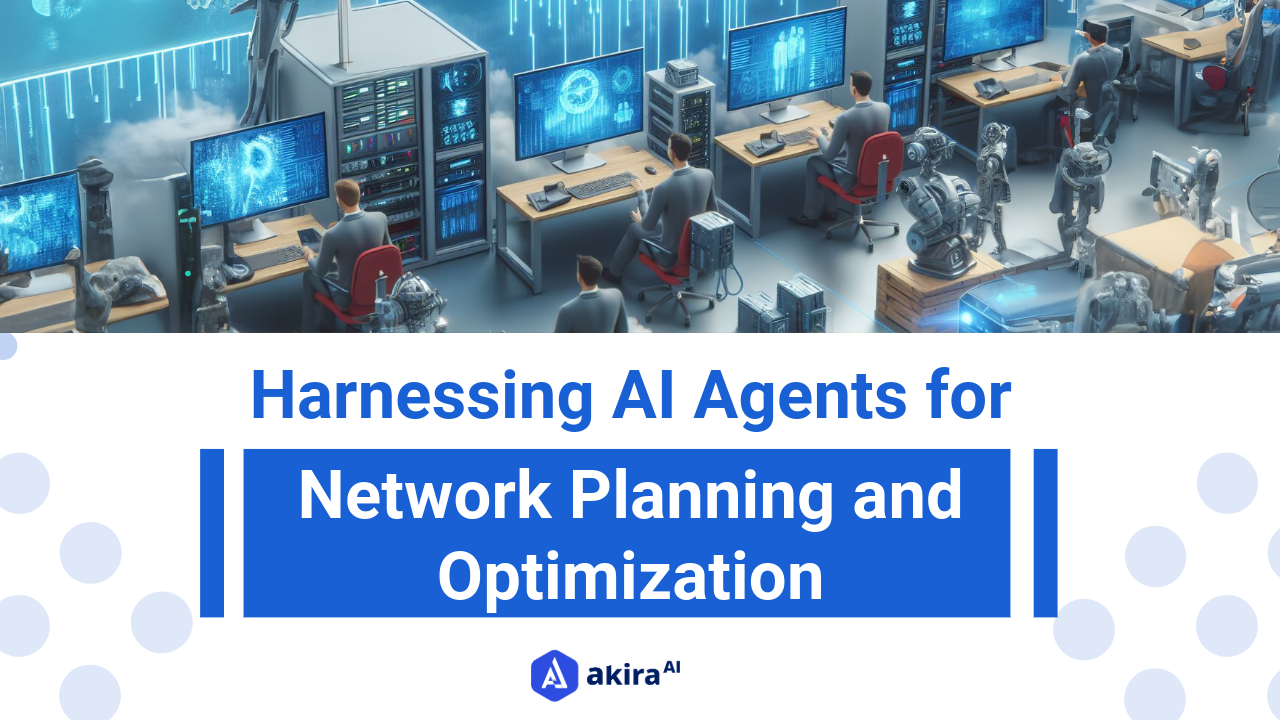Imagine a world where your telecom provider knows exactly what you need before you even say a word. Welcome to the era of AI-driven personalized plan recommendations, where technology meets individual preferences to create tailored solutions for every customer. By analyzing data from usage patterns, billing history, and customer interactions, telecom companies can deliver services that resonate personally with users. This innovative approach not only enhances customer satisfaction but also fosters loyalty.
Given that customers always seek more tailored solutions, telecommunication companies have risen to the occasion of using Agentic AI to disrupt the conventional method of delivery of services. Get ready to explore how this technological shift is reshaping the way we connect and communicate.
What are Personalized Plan Recommendations?
Personalized plan recommendations in telecommunications involve customizing service offerings based on individual customer preferences and behaviors. This approach utilizes data analytics to create tailored solutions that align with customer needs, ensuring optimal satisfaction. Companies analyze vast amounts of data, including usage history and payment patterns, to better understand preferences. By entering the customer into the recommendation process, telecom providers improve customer touchpoints and, thus, customer loyalty. Real-time adaptation ensures that suggestions can still be valid by the time they are acted upon while solving problems and enhancing the customer experience. Further, individual quotations foster flexible approaches, such as creating an offer that will meet the customer’s expectations in terms of money.
A Brief Overview of Personalized Plan Recommendations in Telecom
Personalized plan recommendations are quite useful to improve customer experience in the telecom industry. By employing advanced segmentation techniques, firms are able to obtain a precise view of the nature of customer interactions and thus are able to deliver appropriate products and services during each phase of the buying process. Maintaining cross-channel consistency is essential, as customers expect a seamless experience across mobile, web, and in-store interactions.
The use of AI agents greatly enhances personalized plan recommendations in telecommunications. They work through big amounts of customer data to come up with tips that are pertinent and appropriate at the time. Real-time information elevates the speed with which decisions can be made based on AI, and at the same time, real-time adaptability gives agents the chance to change approaches based on customers’ behaviors. Continuous feedback loops refine recommendation algorithms, improving personalization over time. By integrating AI into customer relationship management (CRM) systems, telecom companies can boost overall customer satisfaction and loyalty, securing a competitive edge in the market.
Traditional vs. Agentic AI-based Personalized Plan Recommendations
|
Feature |
Traditional Recommendations |
Agentic AI-based Recommendations |
|
Data Analysis Methodology |
Manual processes with static insights |
Real-time, dynamic data-driven analysis |
|
Customer Segmentation Approach |
Broad categories with limited depth |
Individualized insights tailored to users |
|
Predictive Capabilities |
Basic and limited forecasting |
Advanced predictions using machine learning |
|
Engagement Level with Customers |
Primarily reactive interactions |
Proactive engagement that anticipates needs |
|
Adaptability to Changes |
Low adaptability to market shifts |
High adaptability with real-time adjustments |
|
Efficiency of Recommendations |
Often generalized, lacking focus |
Highly personalized suggestions based on detailed insights |
|
Automation in Processes |
Minimal automation, often manual |
Significant automation leveraging AI agents |
Akira AI Multi-Agent in Action
The Akira AI multi-agent system exemplifies how AI-powered recommendations can be applied in telecommunications. It incorporates one agent for every task to recommend a course to the learner. Here’s a breakdown of the agents involved:
-
Data Collection Agent: Using this Data Collection Agent, one acquires user details from many factors, such as billing details, calling, and conversing frequency, among others. Compiling all this information produces a summary for each of the customers, which can be used to understand their patterns.
-
Analysis Agent: The Analysis Agent takes the gathered data and processes it in order to detect preferences and patterns in the users’ use. Being an agent of machine learning in telecom, it provides deep insights that the conventional methods might not discern.
-
Recommendation Agent: The Recommendation Agent generates personalized suggestions based on the insights derived from the analysis. Tailoring recommendations to individual customer profiles ensure that each suggestion is relevant and appealing.
-
Feedback Agent: The Feedback Agent collects user feedback on the recommendations provided, creating a continuous improvement loop. By analyzing this feedback, the agent refines future suggestions, ensuring they become increasingly aligned with customer preferences.
-
Behavioral Agent: The Behavioral Agent monitors changes in customer behavior in real-time, allowing the system to adapt recommendations promptly. By keeping track of shifts in preferences or usage patterns, it ensures that the telecom offerings remain relevant.
-
Engagement Agent: The Engagement Agent works to create many one-on-one touchpoints, making certain that recommendations are tailored well. Employing targeted messaging strategies enhances the overall customer experience and fosters a stronger connection between the provider and the user.
-
Security Agent: The Security Agent implements AI guardrails to safeguard customer data and ensure compliance with regulations. Employing robust security measures protects sensitive information from breaches while maintaining customer trust.
Use Cases Of Personalized Plan Recommendations
Tailored Service Plans: Concrete strategies may involve prescriptive recommendations on how a consumer may want to use their telephone, and how much data the consumer may be allowed to consume among other features. For instance, a user who uses data for streaming services regularly will be redirected to a plan with more data volume.
Targeted Promotions: With machine learning, it is possible to pinpoint those customers who may stand to gain from a particular offer or a better product grade, leading to improved customer conversion. For example, existing customers with near-expired contracts will likely receive offers for the latest equipment.
Churn Prediction: Through user behavior analysis, it is possible to discover clients who are thinking of changing the company and then offer them stimuli to remain loyal to the company, such as discounts or bonuses.
Cross-Selling Opportunities: Personalized recommendations can suggest complementary services that enhance the overall customer experience, such as bundling internet and cable services for better value.
Usage Analytics: Telecom companies can analyze how customers use their services and make proactive suggestions for plan changes that better suit their current habits.
Seasonal Campaigns: Although offering promotions randomly is effective in ensuring that customers receive offers frequently, a much better strategy entails targeting customers at certain times to send promotions that are closely related to their current way of life, such as holiday packages when planning for the summer vacation.
Customer Journey Optimization: Understanding where customers are on their journey allows for timely and relevant recommendations, enhancing satisfaction and increasing the likelihood of upsells.
Operational Benefits of Personalized Plan Recommendations
Integrating AI agents into the personalized recommendation process yields substantial operational benefits:
-
Future of Work Revolution: AI agents are expected to drive 80% of the work by 2025, allowing human agents to focus on more complex tasks that require emotional intelligence and human judgment.
-
Efficiency Transformation Ahead: Companies can anticipate a 25% improvement in efficiency through streamlined processes and reduced manual efforts, allowing for faster response times to customer inquiries.
-
Scalable Operations Unleashed: AI agents allow telecom companies to scale their operations without a proportional increase in costs, as they can handle a growing customer base without additional human resources.
-
Minimizing Human Errors: Automation minimizes the chances of human error, resulting in more accurate recommendations and fewer mistakes in customer interactions.
-
Insight-Driven Strategy: AI agents enable telecom companies to make informed decisions based on comprehensive data analysis, improving strategic planning and customer engagement.
Technologies Transforming in Personalized Plan Recommendations
-
Machine Learning Algorithms: These algorithms utilize components of consumer data to ascertain insights and advice to increase customer service individuality.
-
Predictive Analytics Tools: By forecasting future customer behaviors and preferences, these tools enable telecom companies to be proactive rather than reactive.
-
Natural Language Processing (NLP): NLP enhances customer interaction through chatbots and virtual assistants, providing a seamless experience and addressing customer inquiries in real-time.
-
Data Integration Platforms: These platforms aggregate data from multiple sources, allowing for a holistic view of customer behavior and preferences.
-
Cloud Computing: Utilizing cloud technology facilitates scalable data storage and processing, enabling real-time analytics and recommendations.
-
API Integration: Telecom companies can use APIs to interconnect different tools and platforms in order to streamline the process involved in recommendation systems and data sharing.
-
Security Technologies: Adopting and maintaining high security also guarantees that the customers and their databases are secure and compliant with the laws.
Future Trends of AI Agents for Personalized Plan Recommendations
-
Hyper-Personalization: Future developments will enable even more tailored experiences, responding in real-time to customer behavior, preferences, and mood.
-
Enhanced Multi-Agent Systems: Improved coordination among agents will lead to more efficient processes and better outcomes, creating a seamless customer experience.
-
Integration with IoT Devices: AI agents will leverage data from IoT devices for deeper insights into customer behavior and preferences, allowing for more contextual recommendations.
-
Advanced Security Measures: By implementing AI guardrails, customer data will remain secure while experience will be built to gain customer trust at the same time.
-
Ethical AI Practices: Future systems will focus on ethical considerations to safeguard users from privacy invasion and to conform to governing policies.
-
Greater Focus on Customer Experience: As technology advances, the focus will increasingly shift towards enhancing the customer experience through more intuitive and responsive interactions.
-
AI-Driven Market Adaptation: AI agents will help telecom companies swiftly adapt to market changes, allowing them to stay ahead of competitors by quickly identifying emerging trends.
Conclusion: AI Agents for Personalized Plan Recommendations
As more providers adopt this technology, customers will benefit from enhanced service offerings that align with their preferences. This shift towards personalization is set to redefine the telecom landscape for the better. Promoting the satisfaction of the needs and desires of the individual is the best way for telecom companies to get in and sustain customer loyalty. The future of telecommunications lies in the hands of those willing to embrace AI and innovation.
-
Explore the Virtual Assistants And Chatbots


